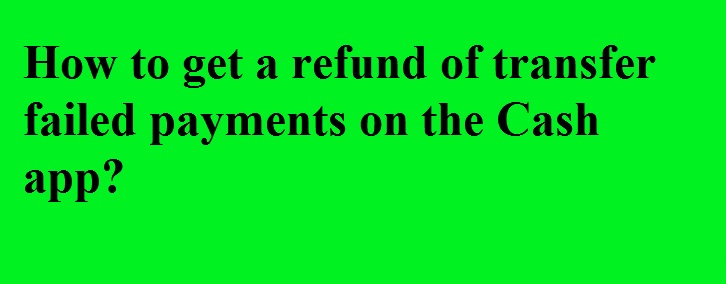Whenever customers face Cash app transfer failed issues while making payment, they think of choosing other applications over the Cash app. Hence our executives keep in mind to serve the users in the best possible manner. So that Cash app won’t lose its customer base. Also, customers are using a Cash app for their convenience but if they face these types of issues on a regular basis then it will get unpleasant for them to continue with this app. In major cases, the failure of the transaction caused due to human errors.
Cash app automatically cancels the transaction for security reasons.
- The stuck amount will be refunded back to the source bank account after the cancellation of payment. Also, in rare cases, the payment gets failed but customers do not get their money back. For those cases, we suggest customers cancel the payment to avoid freezing of payment. You can cancel the payment within 24 hours of the transaction. if you will not cancel the transaction in 24 hours, then it will freeze. In that case, you have to contact the Cash app support team to get the amount back.
- If you are unable to cancel the failed payment or not getting an option for doing so then you can also ask for a refund. You have to send a refund request to the merchant asking to refund the amount. Payment made to your known transaction will surely refund back your amount. Whereas if you send it to an unknown person then it will be a little difficult to get the amount back.
- In the middle of these transactions, sometimes customers also complain that the Cash app has deducted several charges. Well, we all might know that the Cash app takes charges for making transactions from credit cards. Customers can use a debit card to avoid paying these additional charges. Customer can contact the support team immediately to recover the deducted charges.The Cash app authorities will provide complete support to regain these charges. They will coordinate with the bank on your behalf.
- Apart from this, customers can also raise a dispute on the Cash app to get a refund of the failed or wrong transactions. it is obvious that the customer uses their bank account on the Cash app. So, you are the only one who can raise disputes for unauthorized charges. Most of the time then the funds are low, Cash app them self pay the refund amount or charges. If they are unable to provide a refund, then they contact your relevant card issuing bank to return back the charges.
How can you avoid the risk of payment failed?
Sometimes it gets very difficult to get the payment bank. So, we always advise customers to take some precautions to avoid Cash app transfer failures. You can avoid the Cash app payment failed issue by keeping in mind the following points:
- Make sure to confirm and re-check all the entered details such as phone number, account details, or $Cashtag before making any payment.
- Confirm that the card you are going to link to your account is on your name. Avoid using cards of unknown persons and those which are not on your name.
- Maintain healthy transaction history by using a Cash app on a regular basis. Try to use a Cash app once or twice a week to keep a good transaction record.
- Pay and receive payments from known contacts. Try to avoid taking payments from new customers or who are not in your contact list.
- Follow the above points to remove your 80% Cash app transfer failed issues. Customers can follow the above steps to retrieve their funds.
It is obvious that most of the time these types of issues arise due to connectivity issues. So, it is better to avoid these situations by using an excellent internet connection so that you don’t have to suffer in the end. Also, it is important to remain mentally active while entering the sender details Additionally, customers can contact the support team to get help on Cash app transfer failed issues. Also, it is the prime responsibility of the service provider to make their system sturdy and hassle-free.

